A week has passed since the earthquake which struck the centre of Italy at dawn on 24 August of this year. The funerals of the victims of Amatrice brought to an end the first stage of the emergency and began more complex and involved work whose principal objective is reconstruction. This needs clear timetables.
Yesterday the CADIS team coordinated by Father Aris Miranda and made up of Father Sergio Palumbo and Father John Toai began its work of assessing needs in the diocese of Rieti (Amatrice).
A few hours after the earthquake, we set in motion action involving support and information-gathering thanks to the valuable presence of the community of the Daughters of St. Camillus who work at the St. Camillus de Lellis Hospital of Rieti. Sister Marina, the Superior of the community of the hospital, immediately made herself available despite the great difficulties of the emergency.
The St. Camillus de Lellis Hospital is owned by the regional government of Lazio, but it is historically linked to the presence of the Camillians. This hospital immediately took responsibility for the whole of the acute emergency stage, receiving the victims of the earthquake and where necessary sending them on to other hospitals in Lazio.
As of yesterday, thirty-three people from Amatrice, Accumoli and other areas were still in hospital. Two were in resuscitation and the others are about to be discharged. The team had a meeting with Nazzareno Iacopini, the director of pastoral care in health of the diocese of Rieti, their aim being to learn about needs and priorities, and with the chaplain of the St. Camillus de Lellis Hospital. The overall organisation of the emergency operations seems to meet the primary needs of the local population (tents with equipment, logistical services that work…) but what appears to be lacking is what one does not see and what one does not touch: the management of a process of mourning which will last over time because of the loss of loved ones, homes…
The gathering of information needed to understand spaces and needs will not stop over the next few hours. With Father Sergio we will take health-care supplies on 1 September and we have agreed that over the next few days there is a need to be strongly present in the camps of displaced people with the help of parish priests and pastoral workers.
The words of Deacon Nazzareno Iacopini narrated the suffering and the confusion of these days. The aid and help is there but they are not sufficient to counter the pain of a population that has been broken by 291 victims.
We make an appeal to our Provincial Superiors of Italy to make available men and women religious who could be valuable in work involving listening to and accompanying the victims, with stays of varying degrees of length, as well to provide the always needed economic resources.



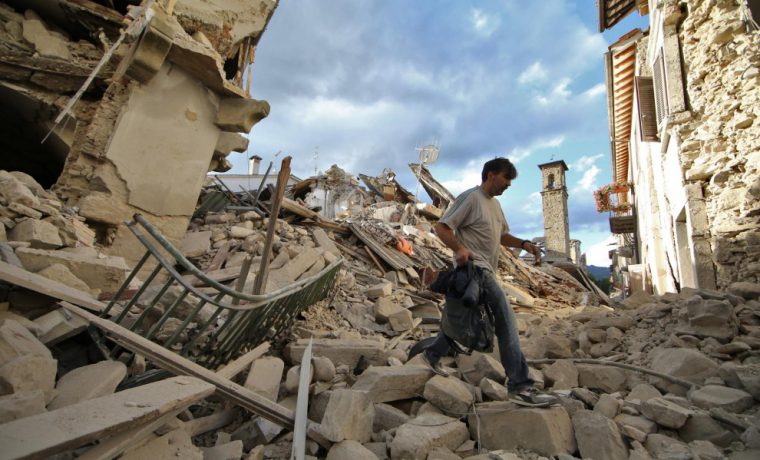
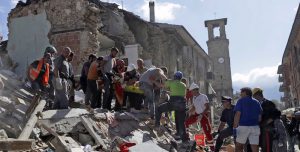





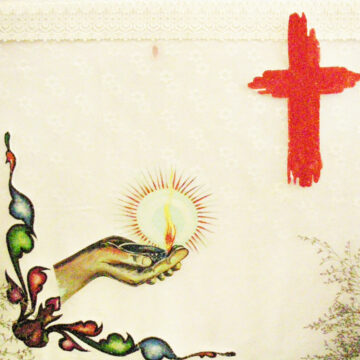
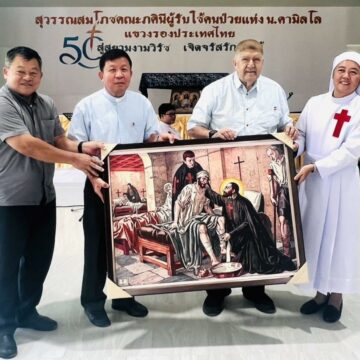
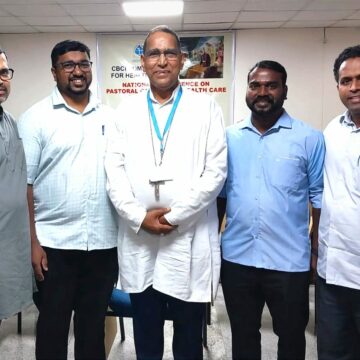


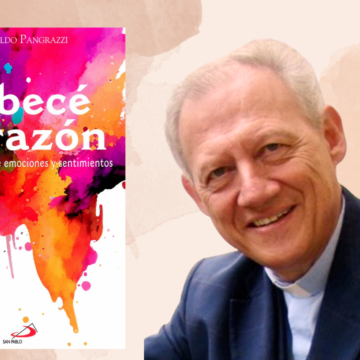
Camillians on Facebook
Camillians on Twitter
Camillians on Instagram